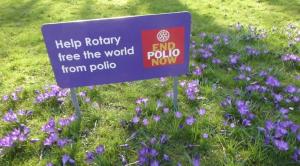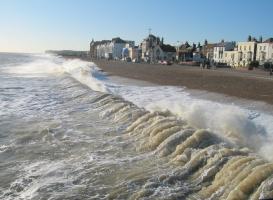Graham's Amazing Job Talk
Wed, Aug 19th 2020 at 3:55 pm - 4:55 pm
Graham Leadbeater gives a presentation on his colourful career in accountancy.
Graham Leadbeater: Job Talk
On 12th August Graham gave us a fascinating presentation on his working life which involved travelling to many parts of the world often negotiating with governments and sorting out problems. No, he wasn’t a politician, leading businessman or double agent but a chartered accountant and his presentation challenges any stereotype of accountancy as a staid and safe financial occupation.
After leaving university he secured a teaching job in Germany and then came back to the UK to complete a Post Graduate Certificate in Education. However, he soon found that teaching was not for him. Graham was then articled to Cooper Brothers, a firm of Chartered Accountants, and became an accountant, staying with this firm for five years. As he didn’t particularly like the work in the profession he moved on to a job with an oil company in the south of Iran where night time temperatures were similar to the daytime temperatures in our recent heat wave.
It was then back to the UK where he joined the Wellcome Foundation. Based in London he was required to travel not only to their research unit in North Carolina but also to16 subsidiaries throughout Latin America. He had both financial and operational problems to sort out as, for example, in Argentina where the Peron Government wanted to increase taxes on foreign companies, which would have wiped out the Wellcome operation. Buenos Aires was a violent place and Graham recounted seeing an assassination on the main thoroughfare. He also remembered a meeting in Uruguay when pistols were placed on the table for use by him and his colleague, should the Tupamaros try to kidnap them. Though a trouble shooter he never looked for trouble in his working life and had no idea how to use a firearm.
After three years with the Welcome Foundation he spent a brief time with a leasing company before being made redundant. He then happened to meet a friend on Bromley High Street who suggested that he join the Civil Service. At that time Maggie Thatcher was looking to appoint experts to support the work of government departments so he applied, was appointed and worked in several different departments but didn’t see this as his future.
Graham received a phone call offering him a three year contract with the National Audit Office to work in Paris with the European Space Agency. As an accountant with three working languages he was well suited so he applied and went for interview. His carefully prepared questions were met with a direct ‘Do you want the bloody job or don’t you?’ from the Chairman: Graham had obviously been headhunted. He went off to Paris in November 1981 and Catherine took leave of absence from the school in London, where she was head of German, and joined him for the final year.
The headquarters of ESA are in Paris, the Control Centre in Darmstadt, Germany, the archives, including NASA archives, in Frascati, Italy and the satellites are actually assembled in Noordwijk in the Netherlands. Graham’s job involved him moving between these places. He found the Control centre fascinating with teams controlling the orbits of satellites transmitting data, such as phone calls from the UK to New Zealand. Graham was invited to the launch of a satellite from the European Space Centre in French Guiana. Messages were sent from tracking stations throughout the world: things went smoothly apart from a few problems such as ‘Australia down with a dust storm’. Only when everything was right could the satellite be launched with the press of a button, not from Guiana but from Darmstadt.
After spending three years with the European Space Agency Graham wanted to go home. He was offered a job in Paris as Auditor for the Agency but returned to London and resumed his Civil Service role. Before leaving Paris he was offered a job with UNESCO but he declined. Once back in the UK he found that London had not changed but he had and at this point he realised that that there was no future for him in the Civil Service. The question was, what to do next?
In January1985 he received a telegram asking him to reconsider the job offer at UNESCO. This time he accepted, as becoming Head of Internal Audit would be preferable to the Civil Service. Despite some reservations about the United Nations he found that the job gave him a fascinating and interesting life.
Graham’s first assignment was to the UN office in Havana. A beautiful but poor and derelict city, it was the last outpost of the USSR and heavily subsidised by the Russians. After the Cuban Missile Crisis in 1962 the country became locked down by the Americans. Catherine joined him here and they had a lovely time exploring the city with its beautiful pre-Castro buildings. However, Graham’s assignments were always to sort out problems, usually financial. He was familiar with cities in South America from his time with the Welcome Foundation. With the UN he had assignments in New York ( where the office had always been a problem), Ecuador, Venezuela, Colombia, and Mexico.
The high point of Graham’s career with the UN was when he was asked to visit an educational project in Nepal. From Bangkok he and Catherine travelled to Bangladesh, the poorest country Graham had visited; it was the only time he had seen children and dogs scavenging from dustbins. From there they went to the beautiful Kathmandu Valley in Nepal, where Catherine stayed while Graham went on to the remote west of Nepal with its lack of communication, apart from walking or pack animals.
At an airstrip in Nepalgunj he waited for a UN food drop plane to take him to Bajhang on the Chinese/India border. This flight turned out to be one of Graham’s most frightening experiences. He sat next to the pilot as they crossed the foothills of the Himalayas, until he was told to go back into the cabin and strap himself in. The plane then side slipped down for 3,000 feet before straightening and landing on a short valley airstrip. Graham was surprised to survive. Leaving the valley was almost as dangerous as the plane had to circle seven times before it could clear the mountain ridge.
After landing at Bajhang, Graham met a group of volunteers involved in the construction of schools in this remote area. They set off on foot carrying all they needed. It was an arduous journey, climbing from 3,000 to 5,000 feet each day. By the end of three days Graham had killed the roots of his big toenails and was suffering from altitude sickness. One of the volunteers was a nurse who said that he needed to get down to a lower altitude or he would be very ill. Fortunately the last two days of the trek involved losing altitude and Graham survived. He was thankful that Catherine had not accompanied him on this last stage of the journey. After carrying out checks at the headquarters of this local project, he set out to Bajhang with the project horse and two Nepalese. The saddle fell off the horse and so did Graham! As he knew where he was going he dispensed with the horse and companions and eventually got back to Nepalgunj. He was just about to have breakfast there with a British Council man when an aeroplane was heard and they had to run to the airstrip through the paddy fields for their flight back to Kathmandu. He was thankful to return as he felt pretty awful: tired, in pain and hungry, having survived on rice and lentils for 5 days. He was looking forward to good food, a bath and rest. However, he and Catherine had been invited to dinner by the Minister of Education, which comprised whisky and curry, and couldn’t really refuse. Having endured that he was able to rest.
Later UNESCO assignments were to Romania, after the assassination of Ceausescu in 1989, and to Beirut. This had been a beautiful city, the Paris of the Middle East, with good hotels and decent food. A restaurant they had frequented in the late 1960s overlooked the Mediterranean and had a calm atmosphere with the setting sun and beautiful views. In 1995 the views were just the same until you looked behind you and saw a pile of rubble: Beirut destroyed by conflict and now compounded by the tragedy of the terrible explosion at the port on 4th August this year.
Graham qualified as an accountant in 1963 and looking back, he seemed to have been on the road from then until he retired. He was always travelling to sort out a problem so doesn’t miss this aspect of his career; after closing his office door he has scarcely given it a thought. Until he was asked to do a job talk for Rotary!
'What We Do' Main Pages:

Contact us if your school would like to get involved with growing crocuses and helping to end Polio.
more
